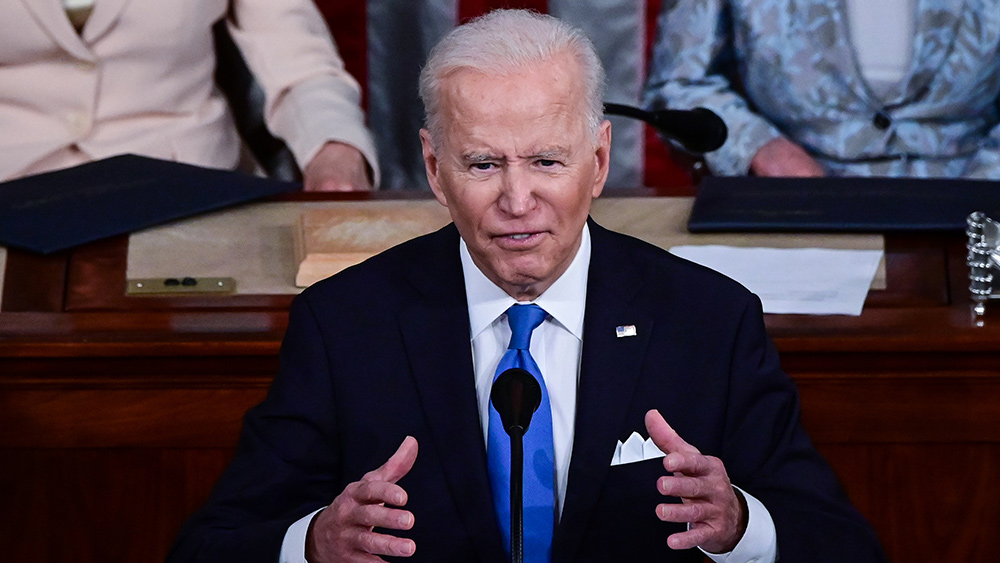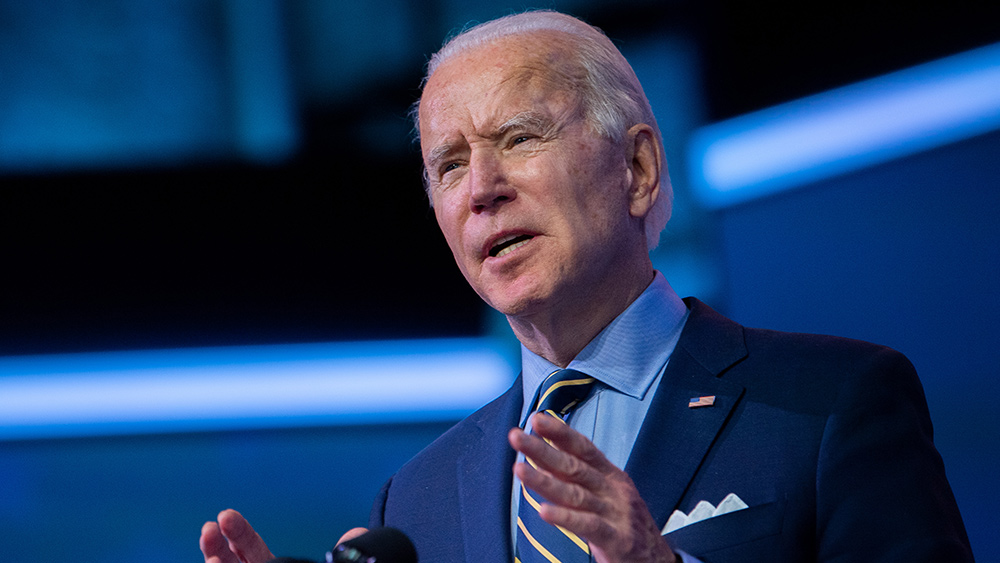Expert warns CBDCs could lead economies to a dark path – where governments dictate what you can purchase
07/06/2023 / By Belle Carter

Eswar Prasad, a Cornell University professor, has warned that central bank digital currencies (CBDCs) – with their expiry dates and restrictions on “less desirable” purchases – could lead economies to a much dark path. Prasad issued the warning during the 14th Annual Meeting of the New Champions hosted by the World Economic Forum (WEF).
During one of the 30-minute panel discussions at the WEF event, also known as Summer Davos, Prasad said programmable CBDCs and other new forms of money could take the international economic landscape toward financial collapse.
He noted that one of the “huge potential gains” for digitizing money is the programmability of CBDC units.
“You could have a potentially better – or some people might say a darker world – where the government decides that units of central bank money can be used to purchase some things, but not other things that it deems less desirable like ammunition, or drugs, or pornography or something of the sort,” Prasad explained. “And that is very powerful in terms of the use of a CBDC, and I think also extremely dangerous to central banks.”
A digital currency has unique characteristics that can serve as the conduit for economic policies in a very targeted way, or more broadly for social policies that could affect the integrity of central bank money and the integrity and independence of central banks. “So, there are wonderful notions of things that can be done with digital money, but again I fear the technology also has the potential to take us to a pretty dark place,” he said.
Meanwhile, the Epoch Times reported that putting expiry dates on CBDCs is currently being discussed across the globe, with the Bank of Canada (BoC) doing a piece on its pros and cons. The institution insisted that an expiry date would “automate personal loss recovery.”
“With this feature enabled, digital cash could not be spent after its expiry date. Consumers whose digital cash expired would automatically receive the funds back into their online account without having to file a claim,” BoC wrote. “We show that offering the option of personal loss recovery could substantially increase consumer demand for digital cash. However, the length of time to expiry plays a key role. An expiry date that is too soon is inconvenient, but a date too far in the future slows down the reimbursement of lost digital cash.”
China has also considered integrating the best-before dates on the digital yuan, creating a policy that would invalidate the money after the specified timeframe.
“Expiring money would increase both the velocity of money and overall economic activity, similar to applying a negative rate to digital cash,” the World Bank wrote. “In practice, a carrying fee on money would encourage people to spend it and thus prevent it from being hoarded.”
Survey: Only 16% of Americans open to using CBDCs
What experts are worried about echo in the nation’s pulse. The Cato Institute’s 2023 CBDC National Survey finds that only 16 percent of Americans support the CBDC adoption despite their regular use of digital dollars via credit cards, debit cards and other digital platforms. (Related: Only 16% of Americans would support adoption of CBDC, survey finds.)
According to the study, 34 percent of Americans oppose the Federal Reserve offering a central bank digital currency and only 16 percent favor it. Nevertheless, the plurality of Americans (49 percent) has not formed an opinion, allegedly because of the fact that only 28 percent of Americans are familiar with CBDCs and 72 percent are clueless. Based on political affiliations, only 11 percent of Republicans favor using digital money, exactly half of the 22 percent of Democrats who support it.
Although CBDCs are advertised as enhancing financial inclusion in the economy, lower-income groups do not support a CBDC more than higher-income groups. Among those earning less than $20,000 a year, 19 percent support it; among those earning more than $100,000 a year, 21 percent support one form of digital currency.
The survey also found that 68 percent of Americans would oppose it if the government could monitor their purchases. While both Democrats (71 percent) and Republicans (82 percent) would oppose a CBDC if the government could control what people spend their money on and when. Also, 76 percent of people are more concerned about CBDCs’ potential risks than their promised benefits.
Visit CurrencyCrash.news for more news related to the phasing out of physical money amid the proliferation of digital currencies.
Watch this video that talks about the Bank for International Settlements releasing the new plan for a global CBDC.
This video is from the Pool Pharmacy channel on Brighteon.com.
More related stories:
Engineered financial coup designed to trigger currency crash and usher in CBDC.
Kiss your autonomy good bye: One-world digital currency receives endorsement to replace fiat money.
Feds using banking crisis to usher in central bank digital currency, experts warn.
Sources include:
Submit a correction >>
Tagged Under:
best before, big government, bubble, Cato Institute, CBDC, CBDC National Survey, central bank, Central Bank Digital Currency, computing, conspiracy, currency crash, currency reset, deception, dedollarization, democrats, digital cash, digital currency, dollar demise, economic riot, expiry date, government, money supply, physical currency, potential gains, propaganda, Republicans, risk, Summer Davos, survey, tech, wef
This article may contain statements that reflect the opinion of the author
RECENT NEWS & ARTICLES
COPYRIGHT © 2017 GOVTSLAVES.COM
All content posted on this site is protected under Free Speech. GovtSlaves.com is not responsible for content written by contributing authors. The information on this site is provided for educational and entertainment purposes only. It is not intended as a substitute for professional advice of any kind. GovtSlaves.com assumes no responsibility for the use or misuse of this material. All trademarks, registered trademarks and service marks mentioned on this site are the property of their respective owners.




















